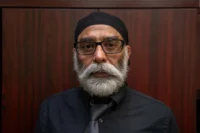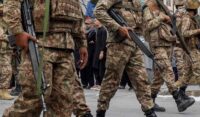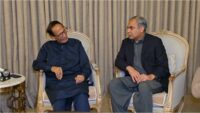What started off in July 2022 seems like it’s never-ending. Wails of people, cries of help, and lifeless bodies floating over the turbulent waters. Torrential rainfall and cloudbursts have placed Pakistan in the line of the biggest existential crisis it has ever faced.
30 million homeless people, 1000+ killed, more than 500,000 houses destroyed, and close to 1 billion livestock deaths. Sounds like the perfect recipe of disaster. Nature took its toll, and it has now turned out to be a humanitarian catastrophe. The best way to describe it would be how unparalleled rain decided to overwhelm Pakistan, affecting three provinces drastically: Khyber Pakhtunkhwa, Sindh, and Baluchistan. 1.3 million people in Baluchistan had prepared for the worst as 20 districts had been severely flooded and 65,000 homes were destroyed.
Besides the agony of watching Pakistan’s infrastructure fall to pieces, the agriculture sector has also faced a major setback due to the flood. Farmers Associates Pakistan (FAP) Director Farooq Bajwa states that the weather has caused 30% loss to the agriculture sector and doomed the farmers, especially women growers, resulting in an epic humanitarian disaster.
Initiatives taken by Pakistan
Witnessing the plight of Pakistan, the current and former Prime Minister rushed to the help of their people. Actions taken by them are:
1. The Prime Minister, Shahbaz Sharif, announces 10bn rupees grant for the flood-stricken province of Baluchistan
2. NGOs like Al Khidmat foundation have rescued, donated, and helped stranded victims, and have promised to do so
3. Chairman of the political party, Pakistan Tehreek E Insaaf and Former Prime Minster, Imran Khan has promised to participate in an international telethon to raise money for those impacted by significant flooding
4. It is the unprecedented move by Pakistan’s Chief of Army Staff, General Qamar Bajwa which also conveys the severity of the situation. While visiting an effected place in Sindh, he urged civilians to come forward and help rehabilitate what calamities the disaster had unfolded.
UAE tries pulling Pakistan out of the well
United Arab Emirates has always helped Pakistan in the need of the moment, firmly devoted and dedicated to the vision its forefather has laid.
His Highness Sheikh Mohamed bin Zayed Al Nahyan, President of the UAE, has directed the distribution of urgent humanitarian aid to Pakistan to assist with the aftereffects of torrential rains and floods. On Sunday, the first flight from the United Arab Emirates (UAE) that was carrying more than 3,000 tonnes of relief supplies touched down at PAF Base Nur Khan. Large quantities of food, medical and pharmaceutical supplies, tents, and other materials for shelter are all part of the humanitarian response. The UAE will also help Pakistani institutions and aid workers with their logistical, medical, and food needs.
In the upcoming days, at least 15 planeloads of aid from the UAE would touchdown in Pakistan. The aid was presented to Ahsan Iqbal, the planning minister, by Hamad Obaid Ibrahim Al-Zaabi, the UAE ambassador to Pakistan.
Why Pakistan needs Environmental Laws Urgently
The last time Pakistan was seen in this state was the floods of 2011, and back then also, UAE made sure to stay true to its role of the ‘helping hand’. According to the Late Sheikh Khalifa Bin Zayed Al Nahyan, the UAE Pakistan Assistance Program (UAE-PAP) was established on January 12, 2011, to assist Pakistan and help it lessen the effects of floods by redeveloping infrastructure.
What’s in store for Pakistan?
The clock has stroked, and these are dark hours for an otherwise jubilant nation. Despite all that the flood has taken away from the nation, it has failed in shattering the soaring spirits of Pakistan. The Islamic republic is extremely grateful for all the help that is being sent its way. However, this is a race against time.
Regardless of Pakistan being a nation with low carbon emissions, it is still the most prone to natural disasters. As a matter of fact, outside of the polar regions, Pakistan has the most glacial ice on the planet, which means it’s high time to focus on this climate crisis before it’s too late. We may not only be putting ourselves in a huge dilemma, but we also might be facing yet another heavy blow.
The question is, how will we as a nation learn a lesson from this terrifying ordeal so that this is not repeated before the next monsoon? When will dams and surge barriers be in immediate effect? Most importantly, how many of us are willing to change our polluted ways, so that this climate-induced humanitarian disaster fails to strike a war against us.
Stay tuned to Baaghi TV for more. Download our app for the latest news, updates & interesting content!






